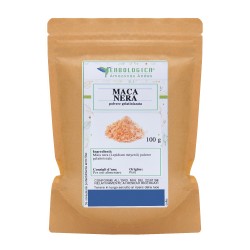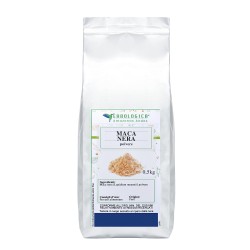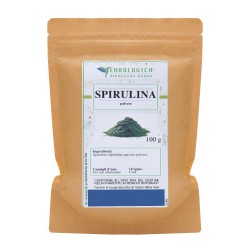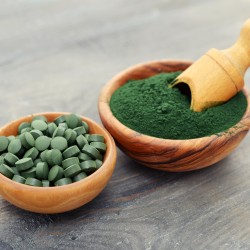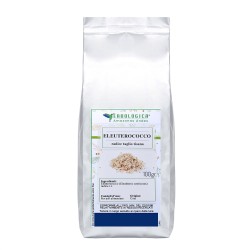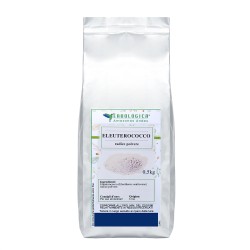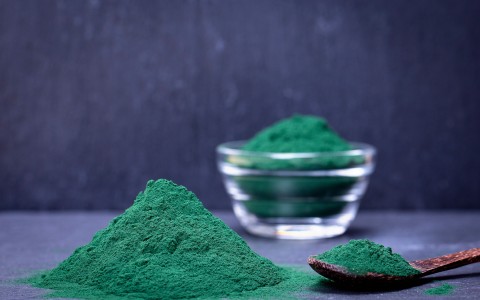
Spirulina in polvere: benefici, proprietà e come usarla per il benessere naturale
Un’antica alga per la salute moderna
La spirulina è una microalga blu-verde, una delle forme di vita più antiche del pianeta.
Cresce naturalmente nei laghi alcalini delle zone tropicali e subtropicali, dove abbonda di minerali e luce solare.
Oggi è considerata un superfood completo, grazie alla sua straordinaria concentrazione di proteine, vitamine, antiossidanti e sali minerali.
Usata da secoli in Africa e in Asia come fonte di energia naturale, la spirulina è oggi apprezzata in tutto il mondo da chi desidera migliorare vitalità, concentrazione e benessere generale in modo naturale.
Cos’è la spirulina e perché è così speciale
Il nome “spirulina” deriva dalla sua forma elicoidale.
È un’alga microscopica, ricchissima di clorofilla e ficocianina, due pigmenti naturali responsabili del suo caratteristico colore verde-blu.
La spirulina è considerata una delle fonti proteiche vegetali più complete: oltre il 60% del suo peso è composto da proteine nobili, contenenti tutti gli aminoacidi essenziali.
A differenza di molti integratori di sintesi, la spirulina è un nutrimento vivo, facilmente assimilabile e privo di controindicazioni quando assunta nelle dosi corrette.
Composizione nutrizionale della spirulina
Questa alga racchiude una densità nutritiva straordinaria. In soli 10 grammi di spirulina si trovano:
Proteine complete: circa 6 grammi per porzione
Vitamine del gruppo B (B1, B2, B6, B12)
Vitamina A (betacarotene naturale)
Ferro e magnesio
Potassio, zinco, calcio e manganese
Omega 3 e 6
Antiossidanti naturali (ficocianina, clorofilla, zeaxantina)
Questa combinazione la rende un ricostituente naturale ideale per chi segue diete vegetariane, vegane o ha carenze nutrizionali dovute a stress o alimentazione sbilanciata.
Benefici della spirulina per la salute
Aumenta energia e resistenza fisica
Grazie all’alto contenuto di ferro, magnesio e proteine, la spirulina è un tonico eccezionale per chi si sente stanco o affaticato.
Molti sportivi la utilizzano per migliorare la resistenza e il recupero muscolare.
Da provare insieme alla Maca Rossa in Polvere, per un effetto sinergico su energia e concentrazione.
Rafforza il sistema immunitario
La spirulina stimola la produzione di anticorpi e aumenta l’attività delle cellule difensive.
Grazie alla vitamina C, al ferro e ai polifenoli, aiuta l’organismo a difendersi da infezioni stagionali e stress ossidativo.
Ottimo abbinamento con la Tisana di Echinacea, nota per la sua azione immunostimolante.
Supporta il metabolismo e aiuta nel controllo del peso
La spirulina regola il metabolismo grazie alla presenza di fenilalanina, un aminoacido che favorisce il senso di sazietà.
Può contribuire a ridurre l’appetito e a stabilizzare i livelli di zucchero nel sangue, risultando utile nelle diete dimagranti.
Ideale con la Tisana Detox Erbologica, perfetta per depurare l’organismo e sostenere la perdita di peso.
Protegge cuore e pressione sanguigna
I suoi acidi grassi essenziali Omega 3 e 6 aiutano a mantenere il colesterolo entro i valori ottimali.
Uno studio pubblicato su PubMed ha dimostrato che l’assunzione regolare di spirulina può contribuire a ridurre la pressione arteriosa e migliorare la circolazione.
Migliora la salute del fegato e del cervello
Grazie ai suoi antiossidanti, la spirulina aiuta a proteggere il fegato dai danni ossidativi.
La presenza di ferro e clorofilla favorisce la rigenerazione cellulare e migliora l’ossigenazione dei tessuti cerebrali, aumentando la concentrazione mentale.
Per un effetto combinato, prova anche la Tisana al Ginkgo Biloba, utile per memoria e lucidità.
Azione anti-age e salute della pelle
Ricca di betacarotene e vitamina E, la spirulina combatte i radicali liberi e aiuta a mantenere la pelle tonica e luminosa.
È utilizzata anche in cosmetici naturali e maschere viso per le sue proprietà rigeneranti.
Come usare la spirulina in polvere
La spirulina può essere assunta in diverse forme: polvere, capsule o compresse.
La versione in polvere è la più naturale e versatile: può essere aggiunta a frullati, yogurt, succhi o insalate.
Dosaggio consigliato
Da 3 a 5 g al giorno (circa 1 cucchiaino raso)
Meglio al mattino, per sfruttarne l’effetto energizzante
Nei periodi di stress o attività sportiva intensa, è possibile salire a 6–7 g al giorno
Scopri la Spirulina in Polvere Erbologica, 100% naturale e senza additivi.
Controindicazioni e precauzioni
La spirulina è generalmente sicura, ma come ogni integratore naturale va usata con equilibrio.
È consigliabile consultare un medico nei seguenti casi:
In presenza di malattie autoimmuni
Durante gravidanza o allattamento
In caso di problemi renali o tiroidei
Evitare prodotti di scarsa qualità: la provenienza e la purezza sono fondamentali per evitare contaminazioni da metalli pesanti o microcistine.
Spirulina e sport: energia naturale per chi si allena
Gli atleti amano la spirulina per la sua capacità di aumentare la resistenza muscolare e ridurre i tempi di recupero.
Le proteine vegetali di alta qualità aiutano la sintesi muscolare, mentre il ferro migliora l’ossigenazione dei tessuti.
Un ottimo abbinamento è con la Tisana di Eleuterococco, un adattogeno naturale perfetto per chi pratica sport.
Curiosità e tradizione
La spirulina era conosciuta già dagli Aztechi, che la raccoglievano dal lago Texcoco e la utilizzavano come fonte di energia prima delle battaglie.
La NASA la ha selezionata come cibo ideale per le missioni spaziali, per la sua altissima densità nutrizionale e la facilità di coltivazione.
È considerata un alimento “sostenibile”, poiché la sua coltivazione richiede poca acqua e produce ossigeno, aiutando l’ambiente.
Domande frequenti sulla spirulina
La spirulina fa dimagrire?
Non è un dimagrante diretto, ma aiuta a controllare l’appetito e regolare il metabolismo.
Meglio in polvere o in capsule?
La polvere è più naturale e versatile, ma le capsule sono comode per chi non ne ama il gusto.
Posso prenderla tutti i giorni?
Sì, 3–5 grammi al giorno sono sicuri per un uso continuativo.
È adatta ai vegani?
Assolutamente sì. È una delle migliori fonti proteiche vegetali complete.
Ha controindicazioni per chi ha il colesterolo alto?
No, anzi: aiuta a mantenerlo sotto controllo grazie agli Omega 3 e agli antiossidanti.
Testo redatto in esclusiva per Erbologica.it
Blog aggiornato in data 11-10-2025


